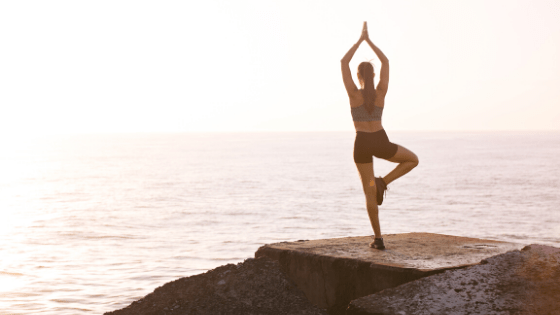There are a lot of changes at the moment with everyone adapting to a new way of living. These changes can cause heightened stress and anxiety levels. Being able to relax and take time away from work, study etc is actually proven to make you more productive overall whilst also increasing your mood and improving mental health. This makes purposeful relaxation extremely important, and a valuable part of your daily routine. Something that relaxes one person might not relax another. You might like to experiment with some of the options below to learn what best relaxes you.
Mindfulness
Mindfulness is the ability to be fully present and engaged with the present moment. When we are mindful we are not caught up in what has happened in the past or worrying about the future.
If this interests you, UNE Counselling has a great tip sheet on mindfulness you might like to have a look at or you could try this short guided mindfulness below:
Meditation
Meditation is the practice of uncritically and non judgmentally attempting to focus your attention on one ‘thing’ at a time and gently letting go of distractions as they inevitably come into your mind. This one ‘thing’ is usually called the object of attention and may be a word, a phrase or simply being mindful and aware of the sensation of breathing. Meditation is stilling the noise level in our mind and attempting to settle our mind into silence. The aim is to simply be in the here and now and not be distracted by worries about the past or concerns for the future.
Headspace have a free ten minute guided meditation and the UNE Counselling team have a great tip sheet if you are interested in having a go.
Aromatherapy
There is some research to suggest that certain smells are able to decrease stress and help you relax. Aromatherapy is a holistic method which uses essential oils for both psychological and physical benefits. The oils can be be used in many ways, such as applied to the skin through balms, creams or roller-balls, diffused through diffusers or in body sprays. Some people recommend using essential oils in conjunction with another relaxation method, such as meditation. One of the most common scents for stress relief is lavender – with multiple studies showing that those who use lavender oil are less prone to bad reactions in stressful situations.
This website gives some great information about different scents and their purposes.
Sunshine/ Outdoors
When going outside, you are likely to experience the benefits of sunlight, fresh air or both. Sunlight triggers the production of serotonin, which increases mood and fights stress. Whereas fresh air increases oxygen levels and encourages deeper breathing. Both of these factors allow your body to relax meaning your mind will soon follow.
Not only are there the benefits listed above, but going outside also changes your environment and removes you from the place where you are currently feeling stressed. Changing the environment allows you to detach from stressful workplaces, home environments etc. Exercise is also one of the six approved reasons for leaving your house under the current guidelines, so make the most of getting out for a little bit each day.
Journaling/ Writing things down
There have been many studies which suggest writing down your feelings can decrease feelings of anxiety and increase happiness and productivity. Writing stressors down allows you to physically see what is causing you stress and work through it.
This article outlines some of the great benefits of journaling and also give some helpful tips on how to get started and journal most effectively.
Breathing Exercises
Have you ever noticed that when you are stressed you tend to breathe more quickly and shallow? Breathing exercises not only increase the oxygen levels in your body but also send messages to your brain to calm down. There are different types of breathing exercises, you will need to find one that suits you. For example, Box breathing is a technique where you inhale for 4 seconds, hold your breath for 4 seconds, and then exhale for 4 seconds. Headspace has a great article with multiple different breathing techniques here. You could also consider following this quick and easy breathing exercise to see if it is something that could benefit you in the future:
Active Relaxation
Relaxing doesn’t always mean being still. For some people, movement and activities provide an escape from the stressors they are currently experiencing.
Exercise
When exercising your body releases chemicals such as adrenaline which tend to build up when you are stressed alongside endorphins (the feel good chemical). With the release of these chemicals, you are able to come down from the fight or flight mode caused by stress and feel more at ease.
Yoga and Tai Chi
These methods combine deep breathing and exercise so it is understandable why it alleviates stress.
Tai Chi is a traditional Chinese low impact form of exercise and stretching. Each movement flows into another making sure your body is constantly moving. If you wanted to give Tai Chi a try, here is a beginners video which includes some targeted stress relief moves:
Yoga is a Hindu philosophy which aims to suppress all activity of mind and body. Unlike Tai Chi, yoga focuses on holding poses and breathing as opposed to continuous movement. These poses reduce tension throughout the body and allow you to let go of negative energy.
If this interests you, you might like to try out this 7 minute yoga session for stress relief:
What helps you relax? Let us know in the comments below. 🙂




